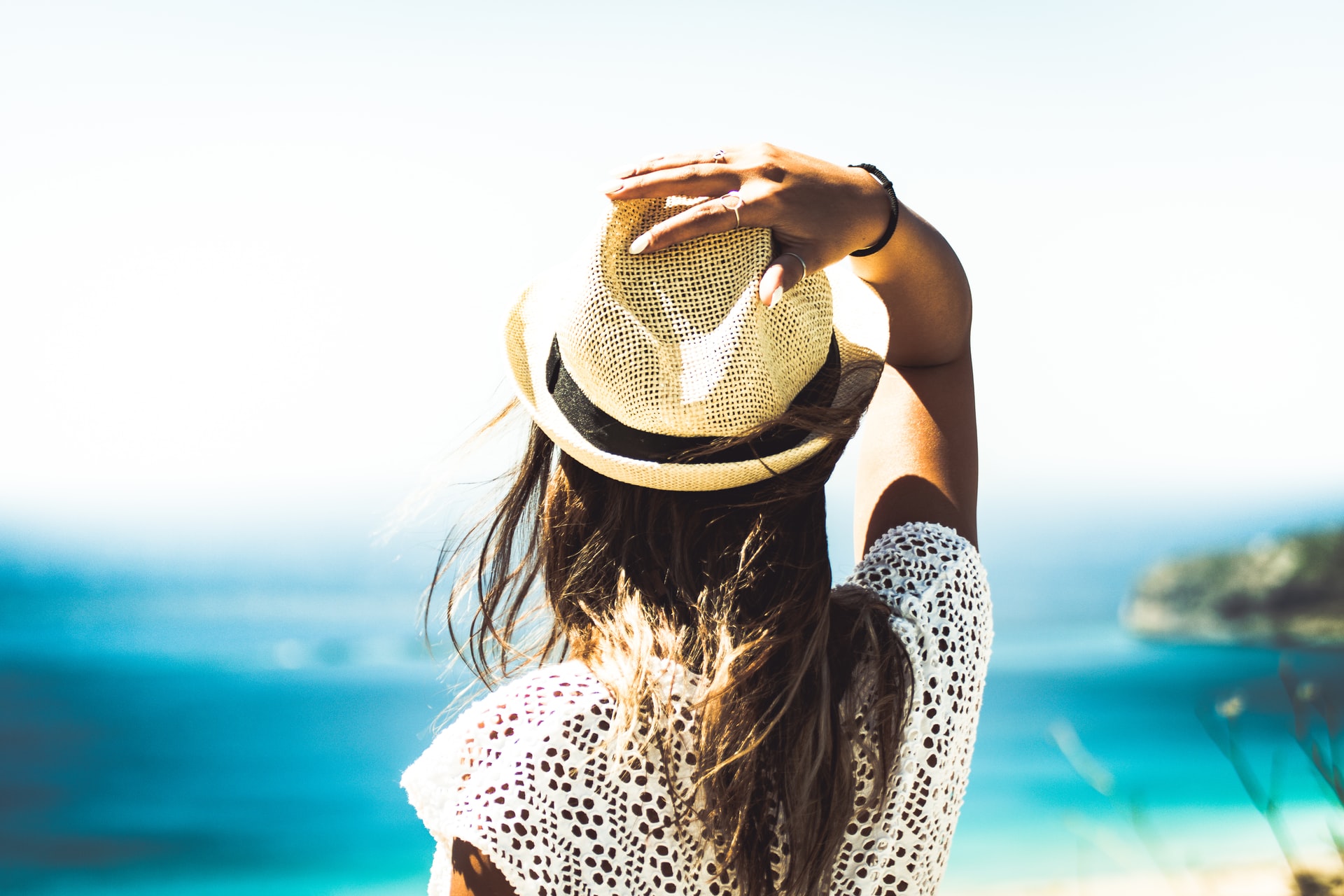
It might be wishful thinking to even consider a holiday abroad this year. But even so, you’re probably still planning on spending as much time enjoying the sunshine as possible this summer.
For many, one of the reasons we like to spend time soaking up some rays is because, at some point or another, someone once told us that it’s good for our skin.
We can’t deny that there are plenty of beauty benefits to lounging on the beach. But is it really true that the sun is good for your skin? And more specifically, is it good for acne?
It can be hard to pin down an answer. We all know that our skin can be seriously damaged by the sun. And still, most of us have been told that it clears up our faces and is great for us. So, what’s the truth?
Does it really help acne, or is it all down to the stress-free relaxation that comes with a summer holiday?
We thought we’d settle it, once and for all.

Does the sun help acne?
Whether you have acne or not, you might have noticed your skin gets better on holiday. But what scientists still aren’t clear on, is why.
What we do know is there are certain light wavelengths, like blue light, that help kill certain acne bacteria strains. There are also wavelengths that have been linked to a more glowing, youthful look. But much of the evidence is anecdotal.
Some studies have found that combining red and blue light can help to reduce sebum, which, when overproduced, is one of the biggest contributors to acne and breakouts. The thing is, there’s not a lot of consistency when it comes to proving that it works.
For some people, it can have a really positive effect. But for just as many, holidays can bring out the worst in our skin.
So why do some people see positive results from the sun?
Well, it might not be the sun.
The whole point of a holiday (most of the time) is to take a break from your life, to relax and remove yourself from day-to-day stress. Our mental health can have a serious effect on our skin. So it makes sense that when our stress levels improve, our skin does too.
And where better to lower your stress levels, than relaxing on a sunny beach?
It’s not quite that simple though. In the sun, our skin tans (duh). And a tan can make the redness from acne seem less prominent, even though it might not be getting better at all.
Of course, there’s another issue right there; when we spend time in the sun, we’re more often applying heavy creams and SPFs to our skin. Which can actually make things worse, especially for acne sufferers.

Why you can’t trust the sun
The anecdotal evidence is piling up. Plenty of people swear by sunshine as a magical solution to their skin problems. It’s tempting to try it out, right? It’s harmless, surely?
Unfortunately not.
Not only does sun exposure risk damage to our skin, earlier signs of ageing, leathery, dehydrated skin and, of course, the big one, skin cancer, but there are other things to consider too.
If you tan, then your skin has been damaged. It’s as simple as that. If your body is already fighting to control your acne, and you’re working hard to keep it from flaring up too, a tan is only going to make things worse.
If you’re going to bask, do it safely with SPF 30.
What should my summer skincare routine look like?
Honestly, not too different to the rest of the year.
The best thing you can do for your skin is to be consistent. Pay attention to how it’s faring and respond accordingly.
That means establishing a routine of removing your make-up properly, cleansing, exfoliating twice a week, and applying your serums and moisturising products as normal. Maybe throw in a face mask or two here and there.
If you make sure to use non-comedogenic products, and those that specifically target acne (opt for niacinamide, salicylic acid and zinc), then sticking to a routine is the best thing you can do.
Make sure to wear an SPF throughout the day. And if you’re really struggling in the summer months, speak to a dermatologist and see how they can help.